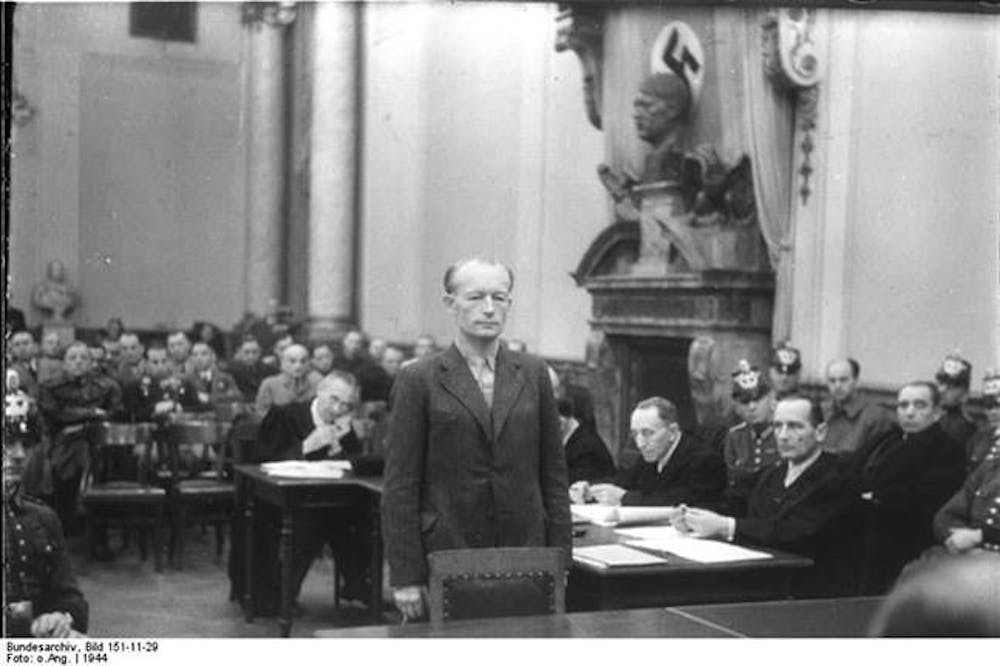Seventy-four years after Hitler’s death and the fall of the Third Reich, UNC professor Eric Muller believes the Nazi regime still holds important ethical implications for America’s political landscape.
On Monday, Oct. 21 at 5 p.m. in the School of Social Work auditorium, professor Eric Muller — UNC’s Dan K. Moore distinguished professor of law in jurisprudence and ethics — will lead a discussion about the ethical failure of laws in Nazi Germany and their lasting ramifications. The talk will be followed by a reception at the UNC School of Social Work.
Muller, a scholar in the Nazi legal system, a subject matter that he has spoken about around the country, said the historical focus of the discussion will center around the 1930s and the years before the mass genocide of the Holocaust began. There will be an opportunity for questions afterward.
“At the most basic level, this is a historical talk," Muller said. "I’m talking about the organized bar of a Western democracy, with a deep and long tradition of independence, of lawyers and value of lawyers in society and how that came to fall apart."
Muller will also discuss how the profession of law came to exist, tracking from the 1800s to the early 1900s and how the systems that led to the Holocaust were put into place.
“At a slightly more abstract level, the talk is also about more timeless questions about how decent people come to participate in systems of racial, ethnic and religious oppression,” Muller said.
Furthermore, Muller mentioned that American history parallels Nazi Germany in that there are deeply shameful chapters in U.S. history in which doctors, lawyers and journalists were involved at a fundamental level, and that we can learn from these events.
“In this talk, I will work against the idea that Nazis were mentally ill, fundamentally inhuman characters that stand 75 years back in history,” Muller said. “I will instead try to encourage the harder work of looking at some of these lawyers, and seeing if we can understand them a little better, and maybe even see bits and pieces of ourselves in the choices and dilemmas they faced.”
The talk will take place as part of a series of events hosted by UNC’s Office of Ethics and Policy for Global Ethics Month.



